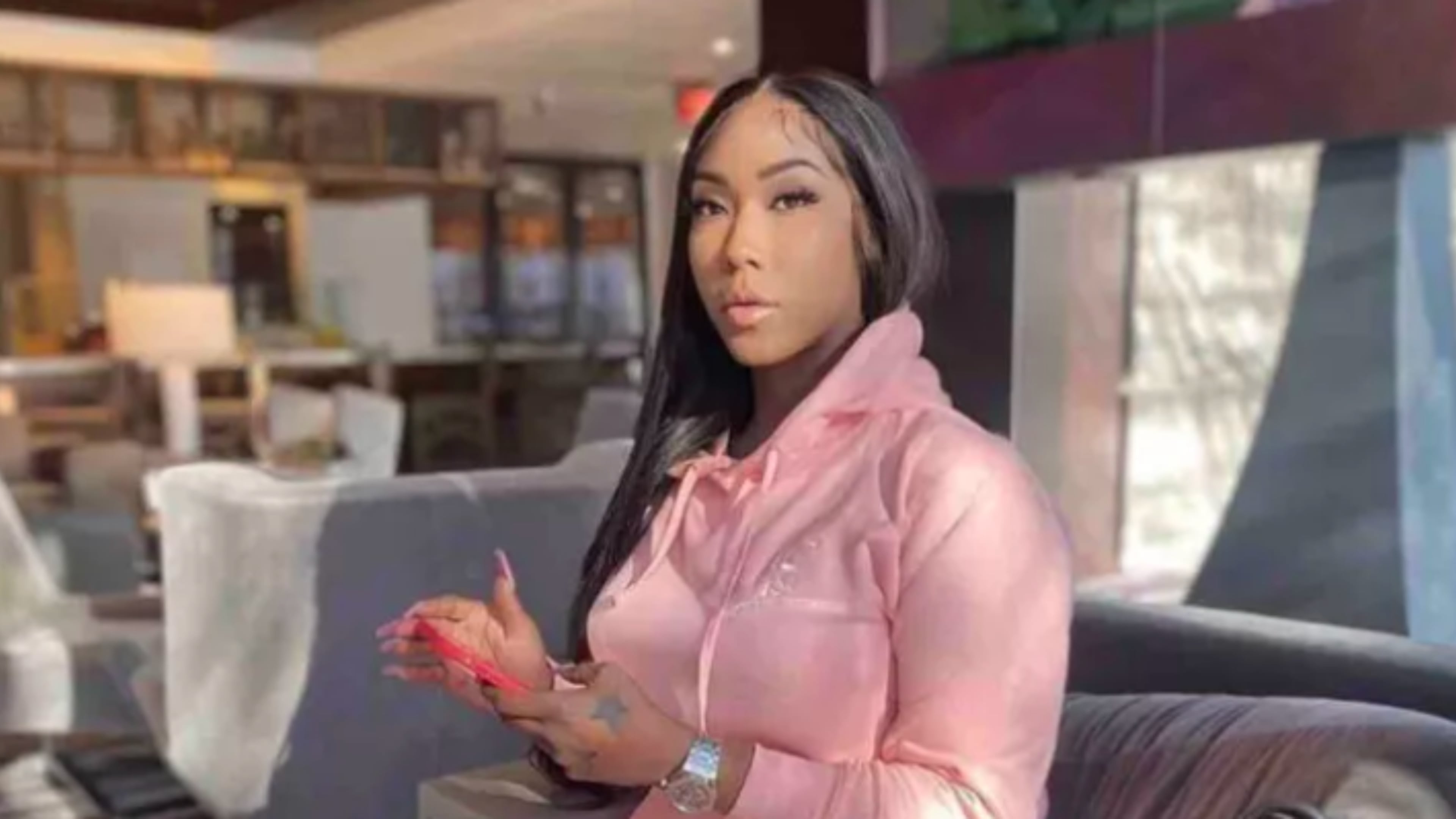‘Kokomo City’ shines a light on the humanity of Black trans women

After the murder of Rasheeda Williams, aka Koko Da Doll, at a southwest Atlanta shopping center on April 18, D. Smith’s award-winning documentary “Kokomo City” became more than just a new film. It sparked a national conversation on the plight of Black trans women. Williams was one of four Black trans women sex workers Smith profiled in the documentary. And Smith hopes Williams’ death offers a reminder of the harsh reality that exists at the intersection of being Black, trans and a sex worker.
“After that (film) was done, she had to go back to what she knows,” Smith said. “The truth is, she was a sex worker and, as cool and edgy as the film is, the reality is still there. They’re in danger every single time they’re with the client.”
When D. Smith conceived the idea for “Kokomo City,” she was on the brink of considering sex work herself. After having had a successful career as a music producer in Atlanta, she was sleeping on couches and floors in New York City.
“I made some dope ass music with some really big artists, and even that got me sitting here by myself thinking, so how does a trans woman that does sex work that no one listens to, no one appreciates, no one respects, no one protects — how do they survive, mentally?” she said. “How do they do it? Because I’ve never done sex work, but for a split second, I really said, ‘Wow, what are my choices of making money? How am I gonna support myself? How many more couches and people can I ask to stay at their homes?’”
Originally from Miami, the Grammy-nominated producer and songwriter moved to Atlanta in 2007 and stayed here for roughly 10 years. She worked with the likes of Lil Wayne, Ciara, Keri Hilson and Monica and felt like she was on the precipice of becoming a mega-producer in the music industry. That was until 2014 when she transitioned.
Two years later, she appeared on the hit show “Love & Hip-Hop Atlanta” for one season, becoming the first trans woman cast on a prime-time, unscripted TV show. But she still didn’t get the opportunities she received earlier in her career and the connections she once had started to fade. Her car was eventually repossessed and she was evicted from her apartment in 2018. She moved to New York to live with a friend shortly after.
“It all just boiled down to me being transgender,” said Smith, who now lives in Miami. “All of a sudden, I’m not a genius anymore. All of a sudden, I can’t make a hot beat. All of a sudden, I can’t do a popping hook, you know, it was just like none of that stuff mattered.”

So when she started filming “Kokomo City,” her debut film, in 2020 in New York City, she used that pain to create a story that honors the beauty and humanity of being a Black trans woman.
“Kokomo City” is an intimate portrait that captures the resiliency of Black trans women sex workers who are not only trying to survive but find moments of bliss and joy along the way. The documentary follows the experiences of four Black trans sex workers in New York and Atlanta. Shot in black-and-white, the film shines in its gritty and vulnerable storytelling. It will be released in a limited number of theaters on July 28, but locally on Aug. 11.
Edited by Smith on iMovie, the film premiered earlier this year at Sundance and won the audience award and innovator award in the festival’s Next category, which was designed to highlight films that are “distinguished by an innovative, forward-thinking approach to storytelling”.
“Kokomo City” later captured the attention of Emmy-winning actress and filmmaker Lena Waithe, who signed on as an executive producer.
Ironically, in light of Williams’ death, Smith wanted to make a film that didn’t depict Black trans women through the familiar lens of trauma and pain. She also wanted to create a dialogue between the Black cisgender community and the Black queer community.
“I wanted to, as a filmmaker, create a new, fresher, exciting, maybe provocative way of telling the transgender story without maybe feeling forceful or condescending ... So many times when transgender stories are told, it’s always the same trauma, the same statistics, the same sadness, the same deepness. As truthful as these things are, how do you expect people to just, with everything that’s going on in the world, separate themselves from that noise?”
“Kokomo City” is named after James “Kokomo” Arnold, a blues musician who in 1934 recorded the song “Sissy Man Blues,” one of the earliest blues songs that references queer identity. The movie focuses on four women Williams found through friends and social media: Dominique Silver, Daniella Carter, Liyah Mitchell and Rasheeda Williams.

But before the film officially opened, Williams, an Atlanta native, became the third trans woman killed in Atlanta this year.
On April 26, 17-year-old Jemarcus Jernigan turned himself in to Atlanta Police after videotape allegedly identifying him arguing with Williams prior to her shooting was released to the public. Jernigan denied shooting Williams. He remains in Fulton County Jail and faces murder and aggravated assault charges.
Smith met Williams through a friend and said she was instantly “obsessed with her energy.” She knew she needed to include Williams in the film. Smith remembers how sweet and humble she was and is happy she was able to tell her story, but admits it’s an extremely difficult time for the cast and crew.
“Her name and her legacy and her life will never be in vain,” Smith said.
Mitchell, a Decatur resident, said she didn’t feel comfortable leaving her home for two months after Williams died. Williams’ death made her stop doing sex work. Despite the dangers of it, Mitchell said she wasn’t afraid to publicly share her story because of how popular it has become on social media.
“You probably have friends doing it, and you don’t even know, people’s parents have done it back in the day, politicians, people in the entertainment industry, female rappers,” she said. “The City Girls are always talking about pay for my nails, pay for my hair. People are tricking in one way or another. I can’t feel ashamed about something that other people are also doing.”
Her castmate Dominique Silver is also no longer a sex worker. But they hope the film helps reduce the stigma associated with it.
“In order to start the change, you need to stand on the frontlines,” said Silver.
For Smith, “Kokomo City,” represents a rare opportunity to see the varied experiences of Black trans women told in a beautifully raw and honest light.
“I think one of my biggest inspirations and drives was to take transgender women and kind of put them in this space of creativity that no one’s seen and make them cool, make them hot, make them bad asses, make them rock stars and sexy and empowered and just right in the center of their womanhood and their femininity”
She’s also glad that the film preserves Williams’ life and legacy.
“Her story is gonna reach people years and years all over the world,” Smith said. “She was a gift, and it was actually really divine that I met her before she passed because had I not filmed her, she honestly would have probably just been deemed as another trans girl in Atlanta that died. But I have proof of how beautiful and humble and sweet and respectful she was and no one could take that away from her.”
IF YOU GO
“Kokomo City”
Premieres in Atlanta exclusively Aug. 11 at Plaza Theatre. 1049 Ponce de Leon Ave. NE, Atlanta. www.plazaatlanta.com. Starting Aug. 15, the film will be available to rent on platforms like Amazon, iTunes and cable VOD.


